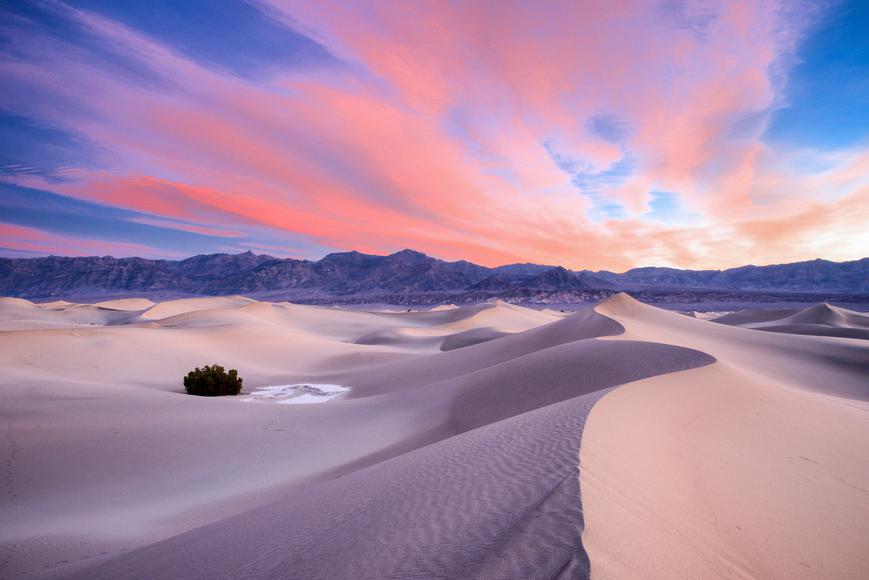The process in which water softens minerals in rocks
a. abrasion
b. hydrolysis
c. carbonation
What is hydrolysis
Carbon dioxide in rainwater creating carbonic acid is an example of this type of chemical weathering:
a. abrasion
b. oxidation
c. carbonation
What is carbonation?
Areas are defined by environmental conditions such as similar climate, soil composition, and geological features
a. weathering
b. ecoregions
c. deposition
What is ecoregions?

This sand dune was most likely formed by
a. water flowing from the left
b. water flowing from the right
c. wind blowing from the left
d. wind blowing from the right
What is the wind blowing from the right?
Which event is the best example of erosion?
a. breaking apart of shale due to water freezing in a crack
b. dissolving rock particles on a limestone gravestone by acid rain
c. rolling of a pebble along the bottom of a stream
d. crumbling of bedrock in one area to form soil
What is the rolling a pebble along the bottom of a stream?
Landslides and mudflows change Earth's surface...(slowly/quickly)
What is quickly?
The difference between weathering and erosion is: a. weathering causes a quick change in landforms and erosion causes a slow change in landforms. b. weathering breaks rocks into sediments and erosion moves sediment from one place to another.
What is B?
Erosion and deposition are driven by this force.
a. gravity
b. glaciers
c. convection currents
What is gravity?
When rainwater seeps into cracks in rocks and __________, it expands and causes the rock to split apart.
What is freezes?
The difference between erosion and deposition is: a. erosion moves sediment from one place to another and deposition is a physical feature on the Earth. b. deposition is the process of adding , or depositing , sediment in a new location and erosion is the process of moving sediment from one place to another.
What is B?
V-shaped valleys, waterfalls, and rapids are features created by __________ rivers.
a. young
b. mature
c. old
What is young rivers
Name a difference between weathering and erosion.
What is weathering makes things smaller, and erosion moves it?
A delta is formed when sediments collect and settle over time. The process of sediments, soil, and rocks being added to a landform is called _________
A. Weathering
B. Erosion
C. Deposition
What is C-Deposition?
Large masses of ice move slowly over land forming U-shaped valleys
What are glaciers?
Rock arches, sand dunes, and mushroom rock formations are caused by abrasion from:
a. wind
b. water
c. ice
What is wind?
Beaches are formed by
A. weathering
B. Erosion
C. Deposition
What is C, deposition?
The following are agents of chemical weathering, except:
oxidation
acid rain
abrasion
What is abrasion?
The primary cause, or agent, of erosion.
What is running water?
All of the following are forces that change landforms EXCEPT:
a. wind
b. moving water
c. glaciers
d. physical features of the land
What is physical features of the land
Arches, sand dunes, and mushroom rock formations caused by wind abrasion happen slowly or quickly.
What slowly?
The difference between physical and chemical weathering is: A. Physical weathering just breaks rock apart and chemical weathering dissolves, discolors, and changes the rocks forever. B. Physical weathering breaks things apart and chemical weathering burns rocks with chemicals.
What is A?
Which of the following are created by deposition?(Choose all that apply)
mudflows, flood plains, deltas, arches, sandbars
What are flood plains, deltas, and sandbars?